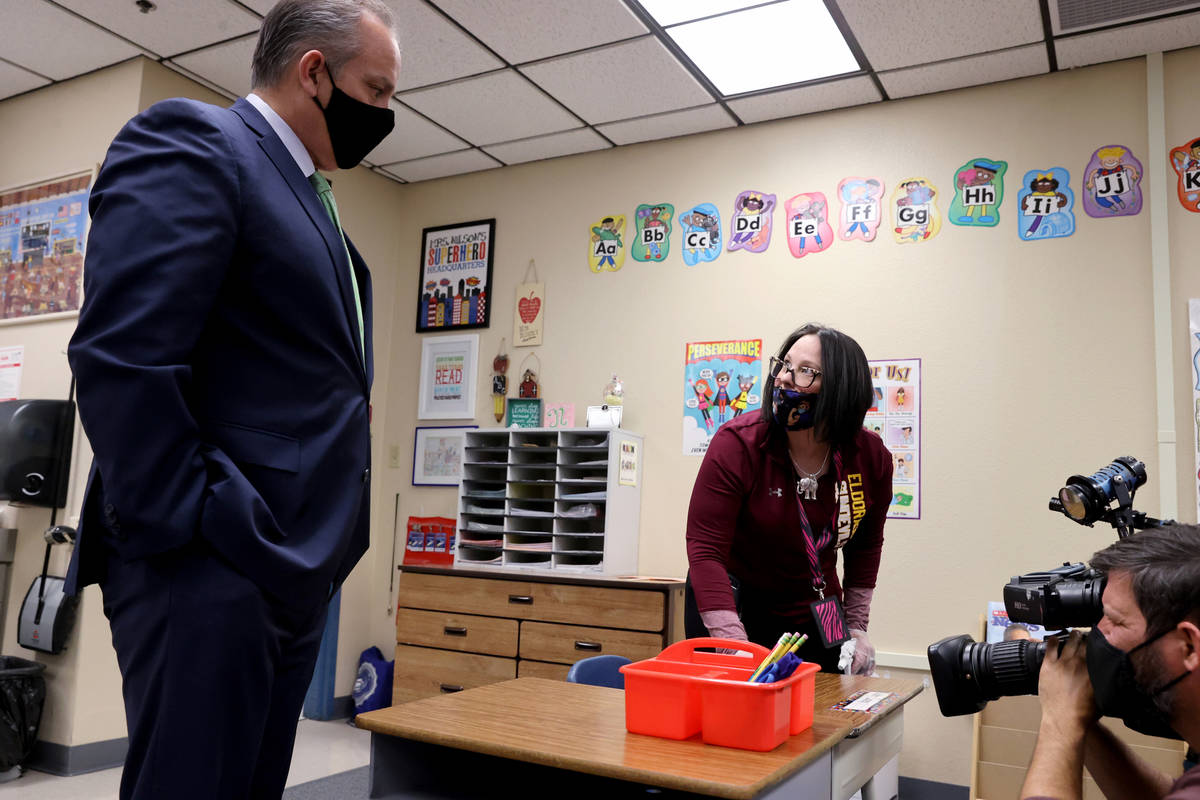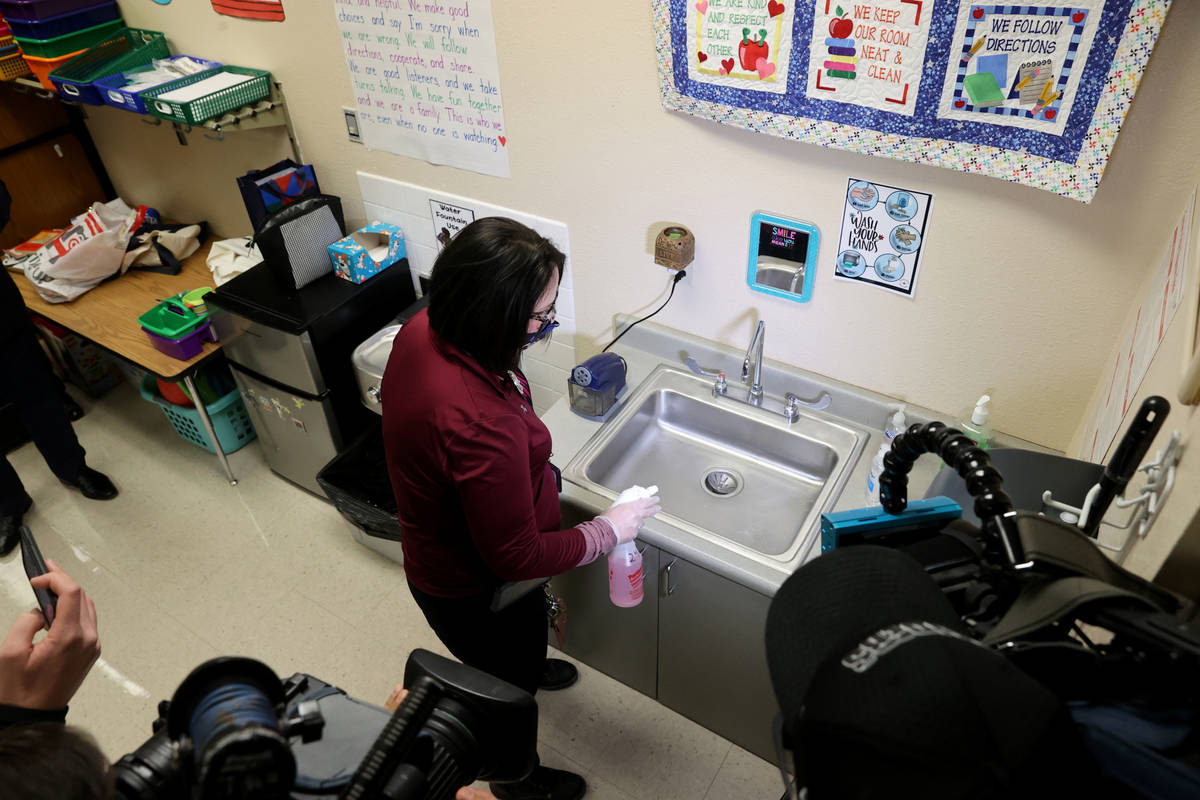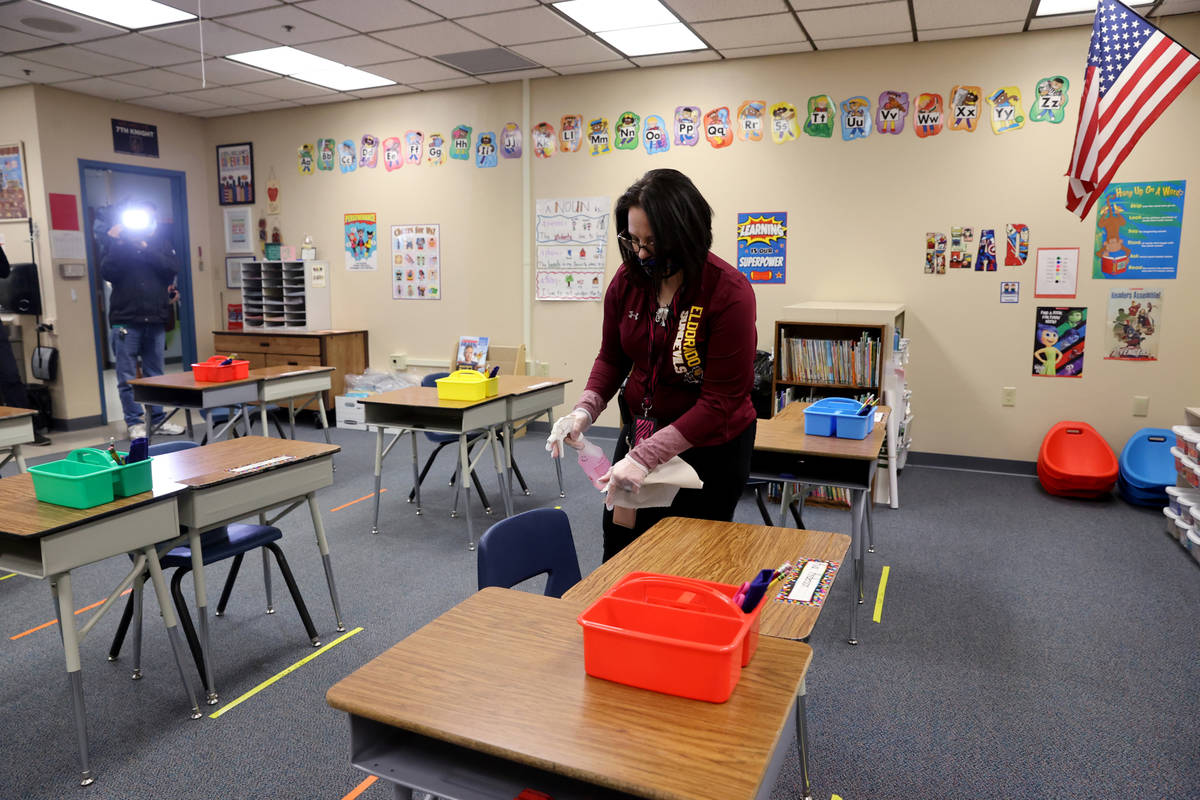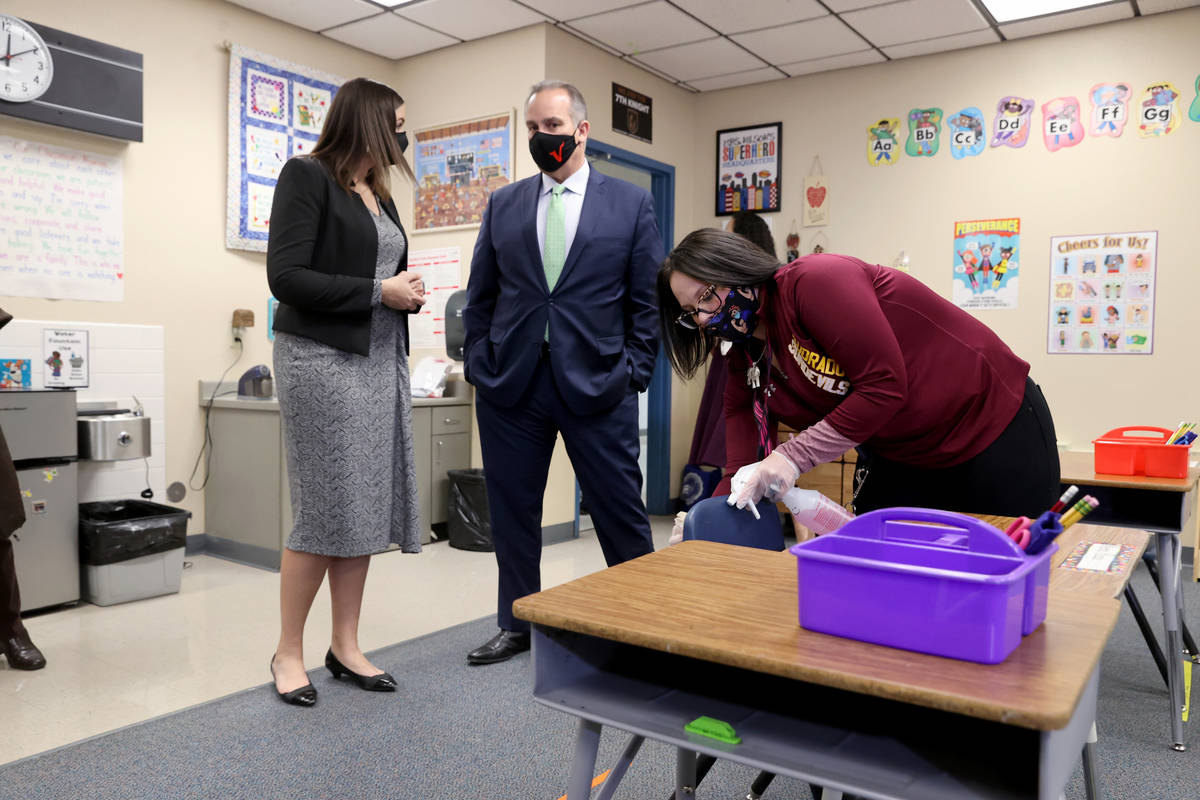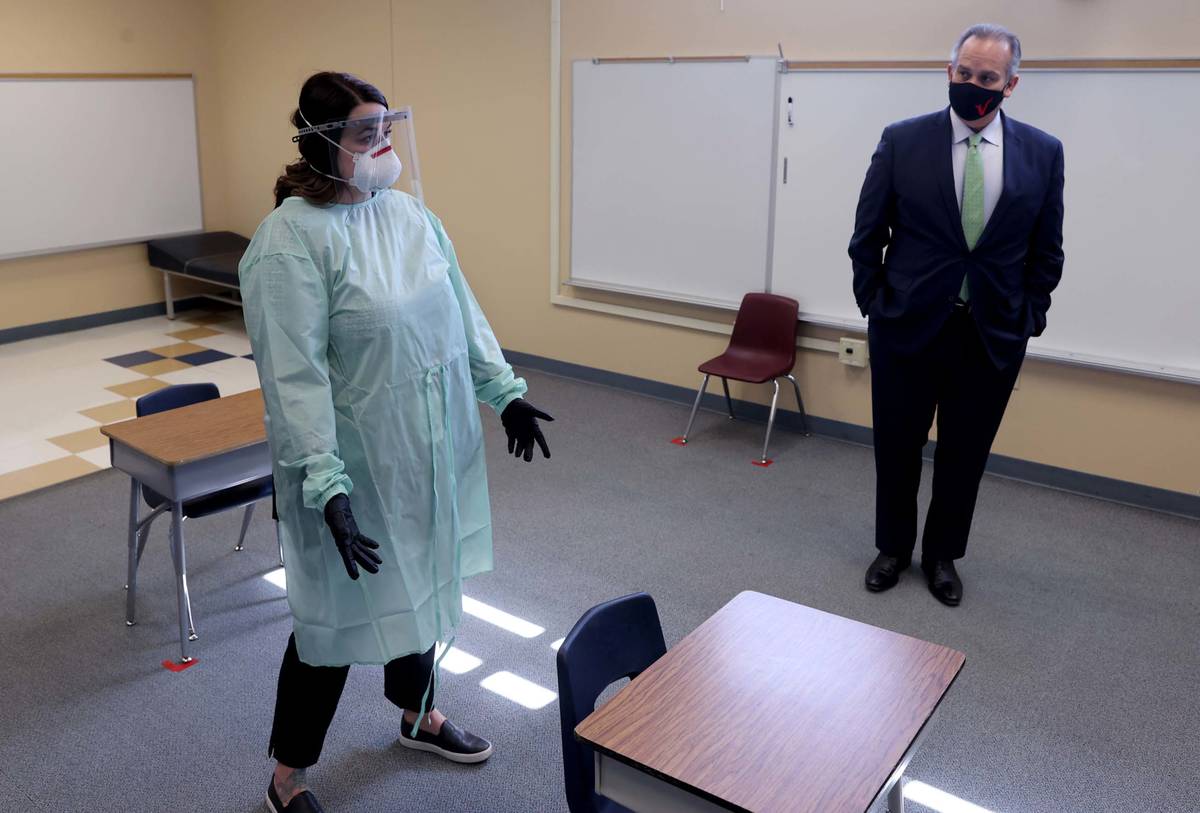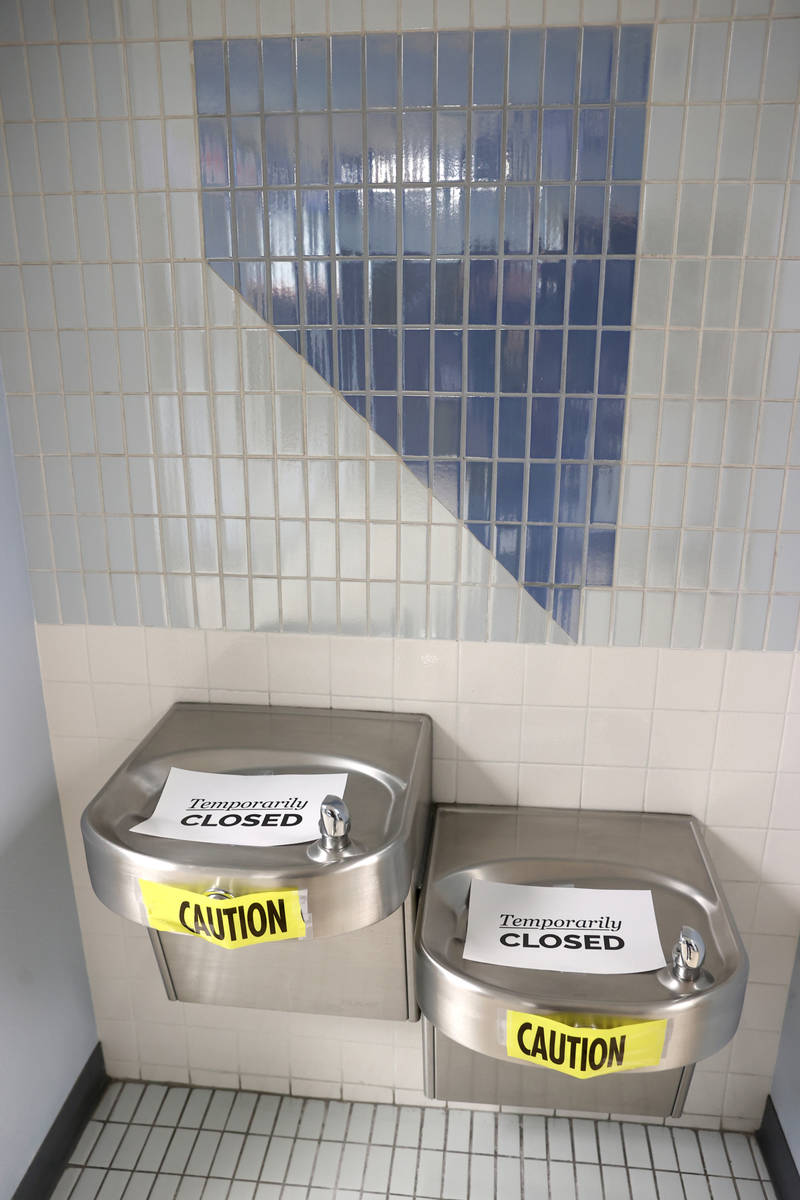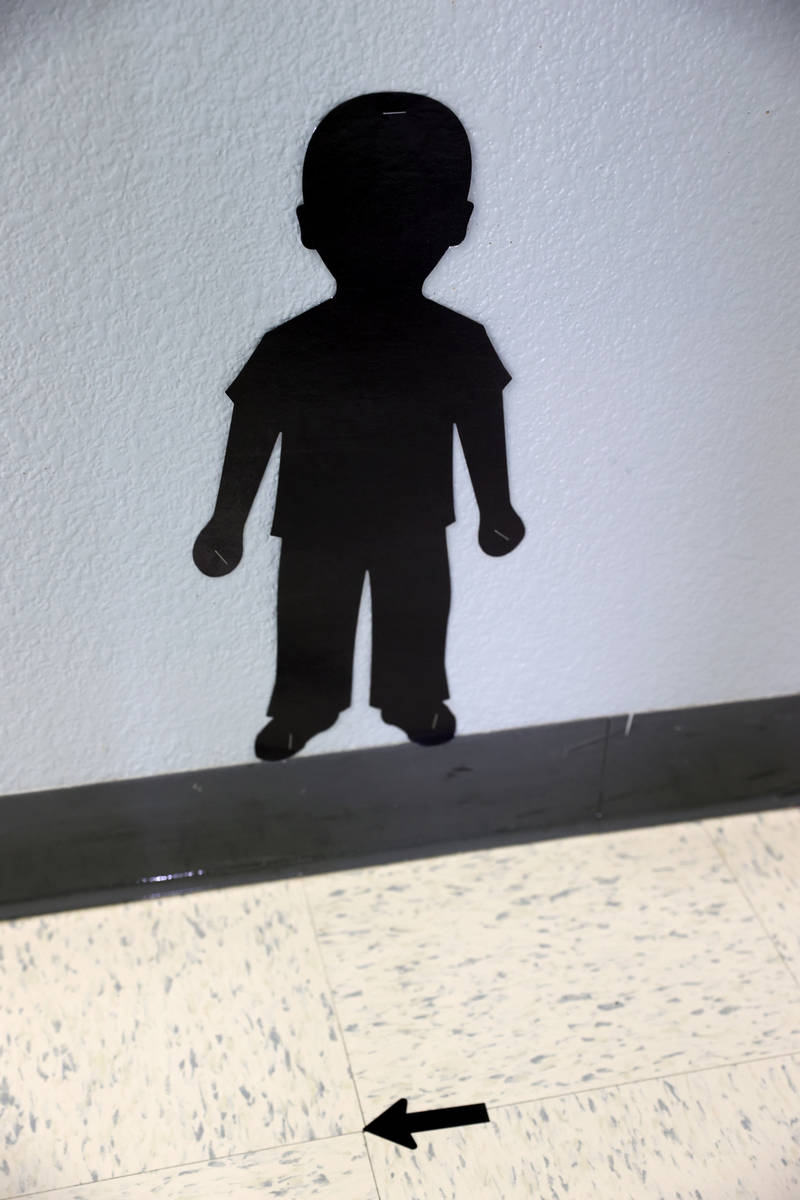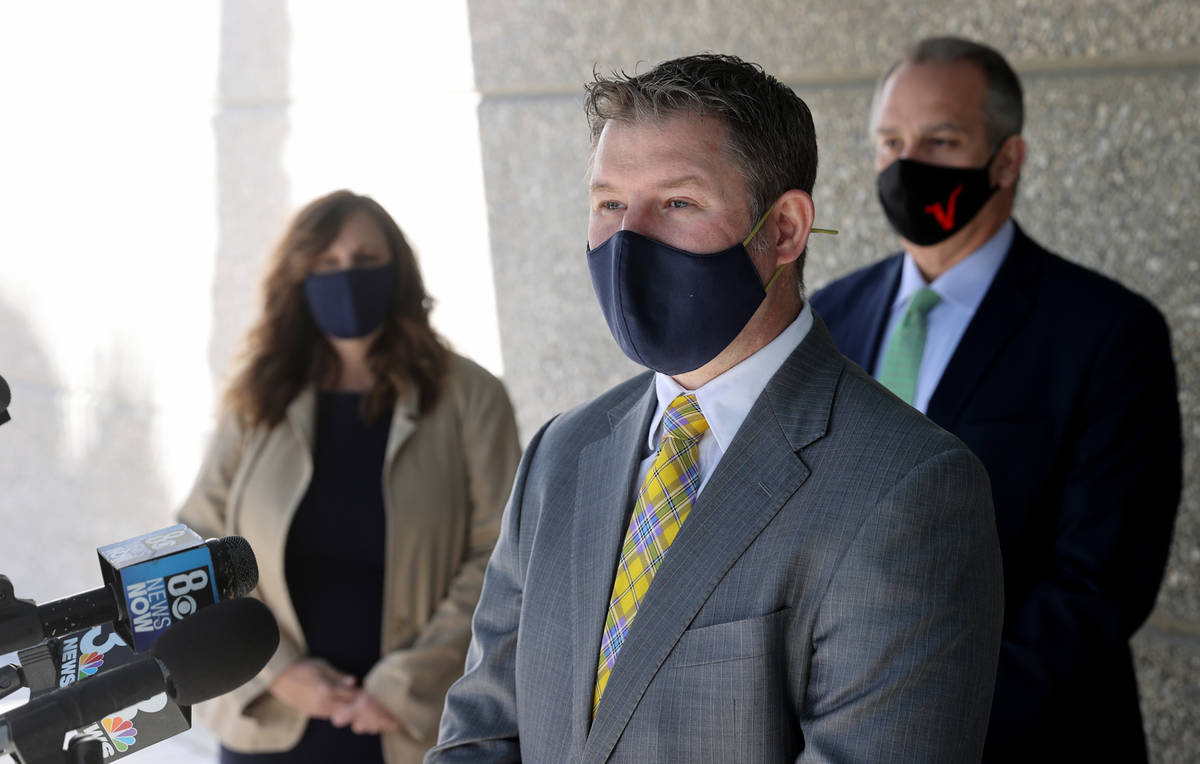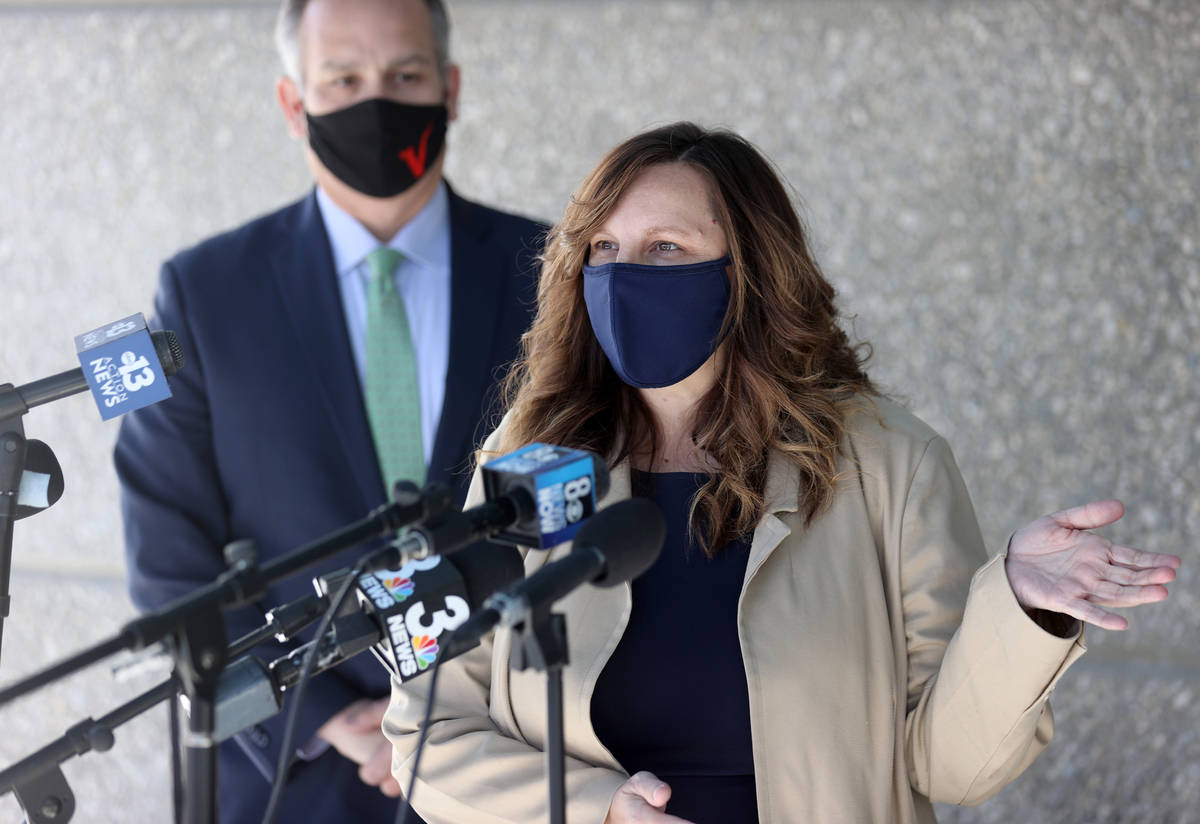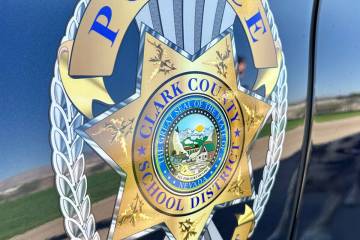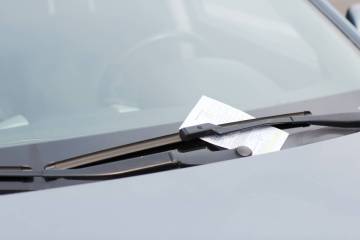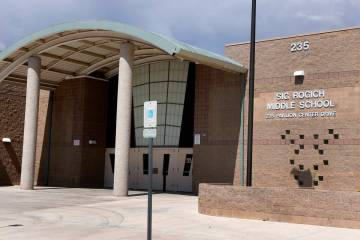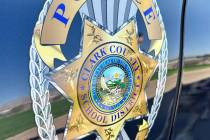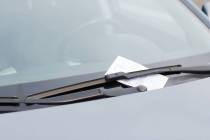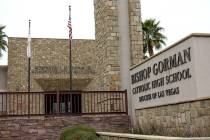Sickroom staff will be well equipped, CCSD official says
The Clark County School District says it has an “abundance” of personal protective equipment for employees in preparation for young students returning to campuses on Monday.
At a briefing for reporters Thursday at Eisenberg Elementary School in northwest Las Vegas, school district officials demonstrated the cleaning procedures that will be in place when some pre-kindergarten through third-grade students return to class and provided an inside look at a sickroom — a space that each school will have to accommodate students with possible COVID-19 symptoms while they wait for a parent to pick them up.
Sickrooms will be separate from so-called “well rooms,” normal school health offices that deal with other student medical needs.
The district will have 340 first aid safety assistants staffing sickrooms. Employees in that role will receive a $3,000 one-time bonus for filling the positions.
One safety assistant told the Review-Journal earlier this week that she hadn’t been fitted for an N95 mask yet and her backup hadn’t either.
But Monica Cortez, an assistant superintendent for the school district, said at the briefing that almost all employees who will be providing direct care for students have now been fitted with the N95 masks by a contractor hired to oversee the process and will be required to wear them under the hybrid reopening plan.
“What occurred is that there were some staff who needed a smaller mask, and so the company had to order those masks,” she said. “It’s not that they don’t have enough. We have plenty of PPE.”
Cortez didn’t provide a timeline for when the correct masks would arrive.
Employees who will wear N95 masks will receive five masks monthly, with one designated for each day of the week, although there won’t be any students on campuses on Wednesdays.
At Eisenberg, sickroom monitors will don personal protective equipment in a storage area before entering the nearby sick room.
A sign on the door reads “do not enter” and “proper personal protective equipment and universal precautions required.”
The room has a few chairs and pieces of red tape on the floor to ensure that occupants are at least 6 feet apart. There are also a couple of desks in the middle of the room.
The room can accommodate up to six students at once in a worst-case scenario.
The room includes a bipolar ionization system. Districtwide, the systems — which essentially render viruses ineffective — were installed in ducts in sick rooms, well rooms or spaces that may encounter a “medically fragile student,” Chief Facilities Officer Jeff Wagner said. The project cost about $1.8 million and was paid for using federal money.
While giving a tour of the sick room Thursday, Wagner said the bipolar ionization systems are “an extra layer of control beyond the things we’ve already done in our indoor air quality program,” including changing and upgrading filters, and making sure mechanical systems work effectively.
Cleaning protocols
Custodians also will play a key role in keeping the school buildings, cleaning rooms daily using a germicidal product, he said. Signs are posted at each classroom that specify when the room was last cleaned.
Between cohorts of students under the hybrid model, “we will do enhanced cleaning,” Wagner said. The same surfaces are cleaned, but it’s with a more aggressive product, he added.
Daily tasks for custodial crews will be changed somewhat due to fewer people in buildings, less generation of trash and lunchtime being handled differently, Wagner said. Instead, they’ll do more frequent cleaning of high-touch surfaces such as light switches, doorknobs and countertops.
Teachers have the opportunity — but it’s not a requirement — to have germicidal product in their classroom, Wagner said, and there’s video training for that so they know how to apply it properly.
In the event of a positive COVID-19 case at a school, the district has the ability to order rapid disinfecting using electrostatic sprayers that discharge a mist.
“It’s extremely effective at disinfecting,” Wagner said, noting that one machine can disinfect 18,000 square feet per hour per machine. “We have multiple machines here in the district.”
Contact Julie Wootton-Greener at jgreener@reviewjournal.com or 702-387-2921. Follow @julieswootton on Twitter.



